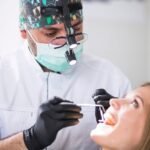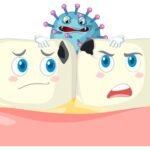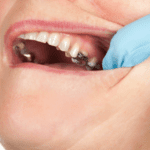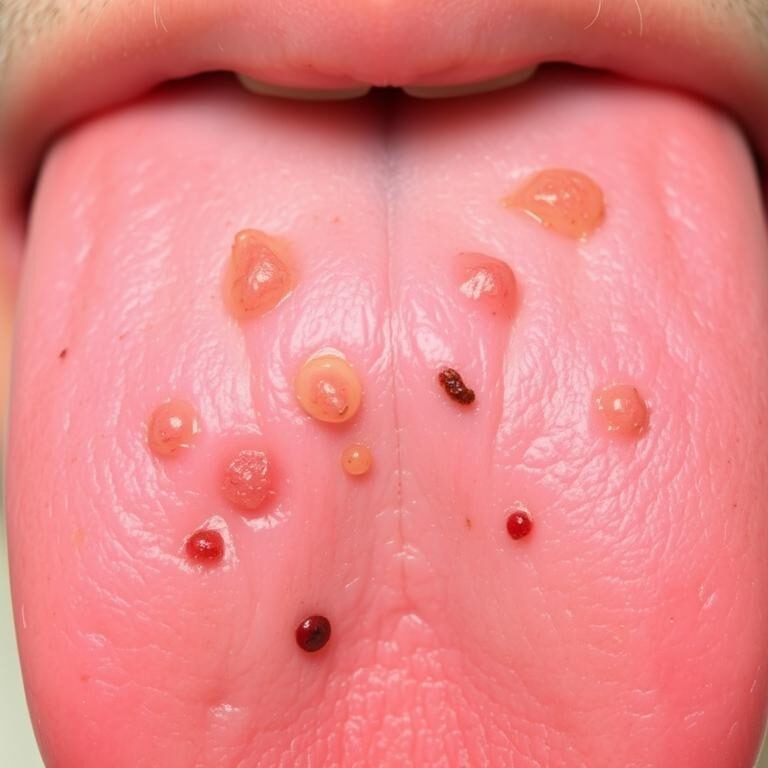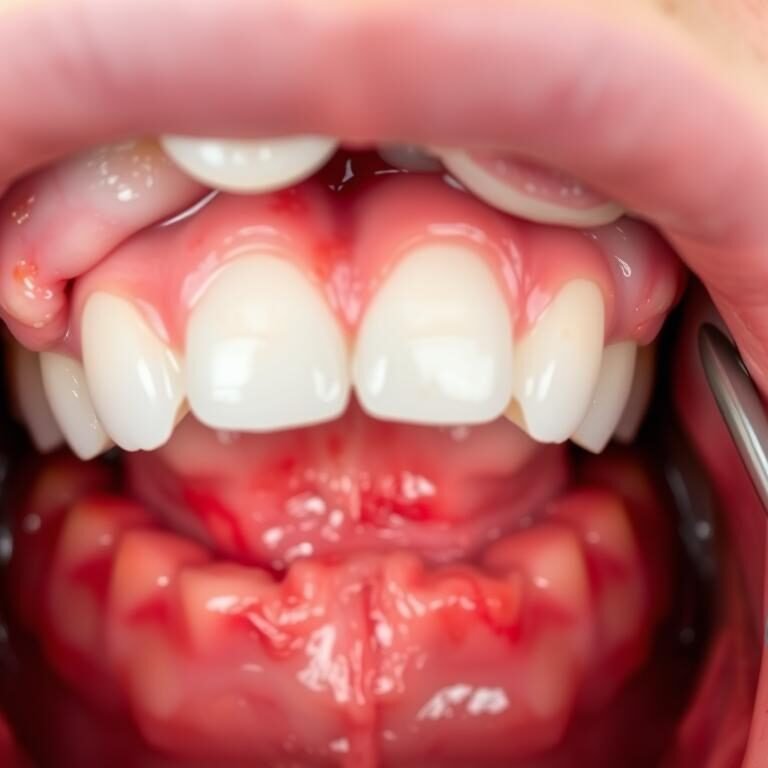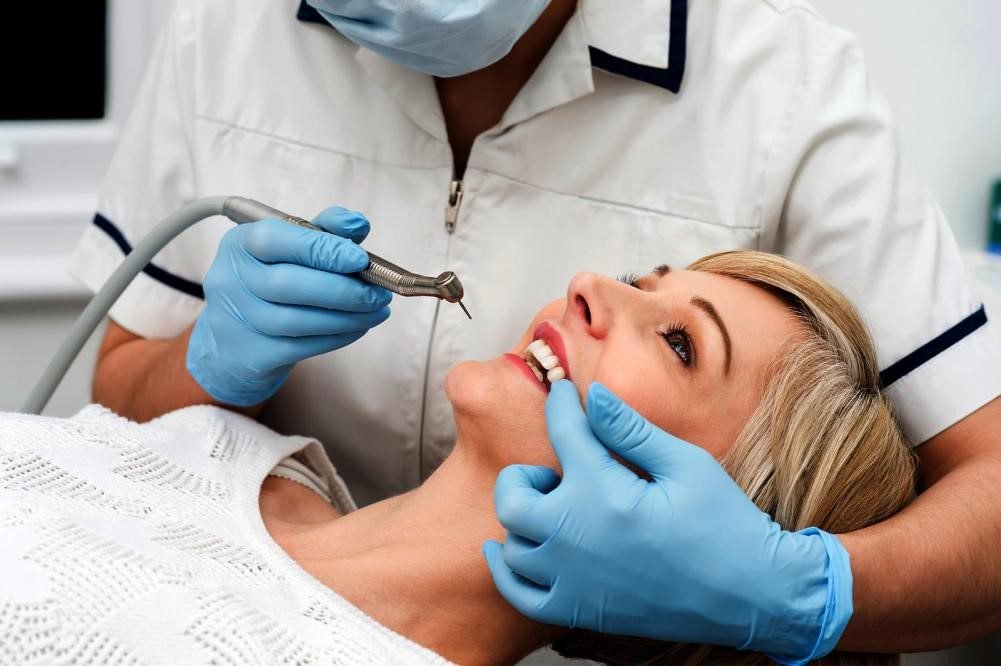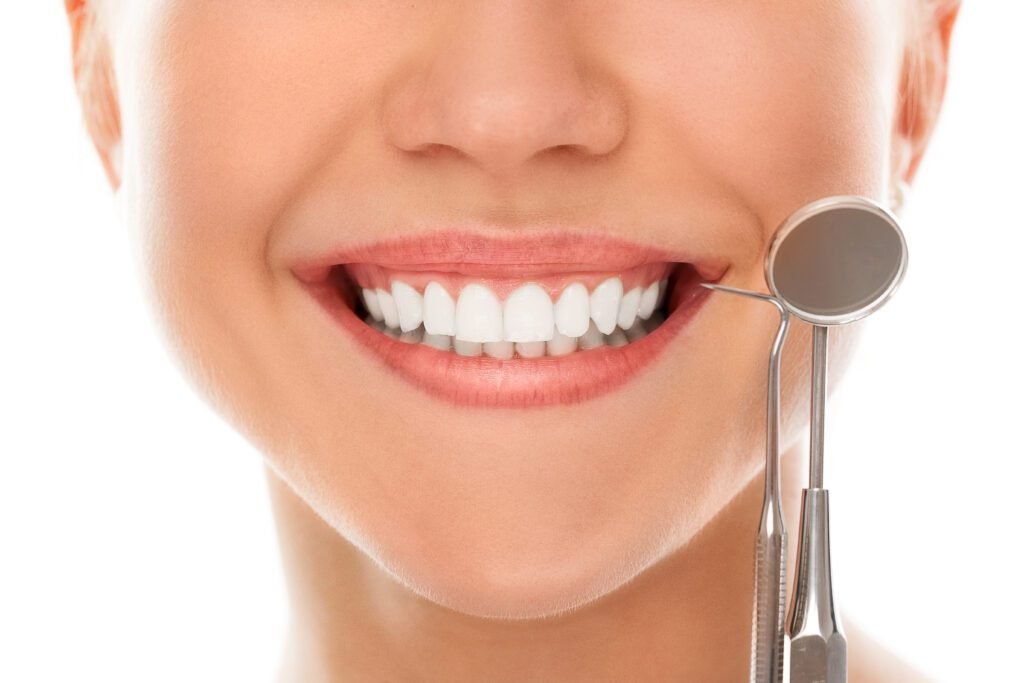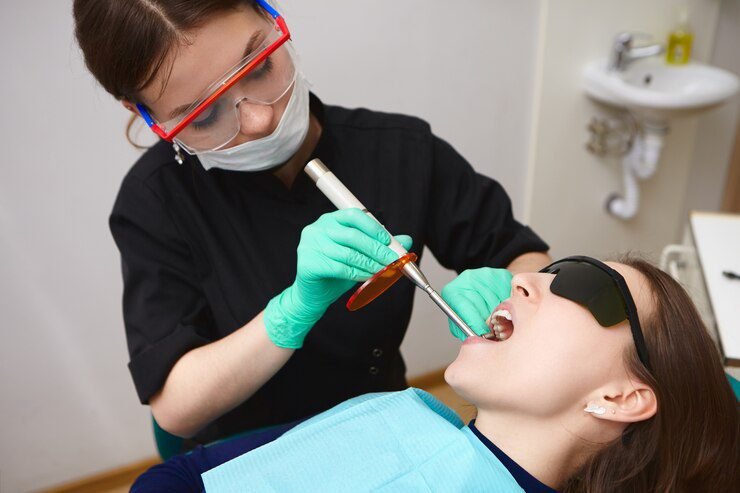Table of Contents
The importance of oral hygiene

Maintaining good oral hygiene is essential for overall health and well-being. Proper oral hygiene practices, such as regular brushing and flossing, play a crucial role in preventing various dental problems, including tooth decay and gum disease.
When we neglect our oral hygiene, harmful bacteria in our mouths can thrive and cause cavities and other oral health issues. These bacteria feed on the sugars and starches present in food and produce acids that erode the enamel, the protective outer layer of our teeth. Over time, this can lead to the development of cavities, which not only cause pain and discomfort but also require expensive dental treatments to restore the affected teeth.
By establishing a consistent oral hygiene routine, we can effectively remove plaque, a sticky film containing bacteria that forms on our teeth. Brushing at least twice a day with a fluoride toothpaste helps to remove plaque and strengthen the enamel, reducing the risk of tooth decay. Additionally, flossing reaches areas between the teeth where a toothbrush cannot reach, removing plaque and debris, and promoting healthier gums.
In summary, maintaining good oral hygiene is vital for preserving our dental health. By incorporating regular brushing, flossing, and using fluoride products, we can prevent dental issues and enjoy a beautiful and healthy smile.
The role of bacteria in tooth decay

Tooth decay is a common oral health issue that affects individuals of all ages. While various factors contribute to the development of cavities, one of the primary culprits is bacteria. Bacteria naturally reside in the oral cavity, forming a sticky film called plaque on the teeth. When we consume sugary or starchy foods, these bacteria feed on the carbohydrates and produce acids as a byproduct. These acids then attack the tooth enamel, causing it to weaken and erode over time.
The bacteria responsible for tooth decay are mainly Streptococcus mutans and Lactobacillus. These bacteria have the ability to thrive in the presence of sugars and carbohydrates, making them particularly adept at causing cavities. Furthermore, the acids they produce can penetrate the deeper layers of the tooth, leading to the formation of cavities. While oral hygiene practices, such as regular brushing and flossing, can help remove bacteria and prevent their buildup, it is essential to understand the role of bacteria in tooth decay to effectively combat this common dental issue.
Understanding the structure of teeth

The structure of teeth is a fascinating and complex aspect of oral health. Understanding the different components of teeth can help us appreciate their functionality and the importance of taking care of them. Teeth are comprised of three main layers: the enamel, dentin, and pulp.
Enamel, the outermost layer, is the hardest substance in the human body. It acts as a protective shield for the underlying layers of the tooth and helps withstand the forces of chewing and biting. Despite its strength, enamel is vulnerable to damage from acids produced by bacteria and acidic food and drinks.
Beneath the enamel lies the dentin, a calcified tissue that makes up the bulk of the tooth. Dentin is not as hard as enamel but still provides support and protection. It contains tiny tubules that connect to the pulp, which is the innermost layer of the tooth. The pulp contains nerves, blood vessels, and connective tissues that supply the tooth with nutrients and oxygen.
By understanding the intricate structure of teeth, we can appreciate the need for proper oral hygiene practices. Regular brushing, flossing, and dental check-ups are essential to maintain the health of these vital oral structures. By protecting the enamel, maintaining healthy dentin, and preserving the integrity of the pulp, we can ensure the long-term health and functionality of our teeth.
The impact of diet on dental health
A healthy diet plays a crucial role in maintaining optimal dental health. The food and beverages we consume have a direct impact on the strength and condition of our teeth. Foods high in sugar, particularly those that are sticky and acidic, can increase the risk of tooth decay. This is because the bacteria in our mouths feed on sugar, producing acids that erode the enamel and lead to cavities. Therefore, it is important to limit the intake of sugary snacks, sodas, and sweets, especially between meals. Instead, opt for a nutritious diet that includes plenty of fruits, vegetables, whole grains, lean proteins, and dairy products. These foods provide essential vitamins, minerals, and nutrients that promote healthy teeth and gums.
Additionally, the frequency and timing of meals can also impact dental health. Frequent snacking or sipping on sugary drinks throughout the day exposes the teeth to a constant onslaught of acid attacks. It is recommended to have structured mealtimes and avoid grazing or continuous snacking. This allows sufficient time for saliva, our natural defense against tooth decay, to neutralize acid and repair the enamel. Drinking water between meals can also help rinse away food particles and stimulate saliva production, further protecting our teeth. By making conscious choices about our diet and eating habits, we can significantly reduce the risk of cavities and ensure long-term dental health.
The significance of fluoride in cavity prevention
Fluoride is a mineral that plays a crucial role in cavity prevention. It has been widely recognized for its ability to strengthen tooth enamel and protect against tooth decay. When fluoride is present in the mouth, it helps to remineralize enamel, making it more resistant to acid attacks from plaque bacteria and acidic foods. This can significantly reduce the risk of cavities and promote overall dental health.
Numerous studies have shown the effectiveness of fluoride in preventing tooth decay. In fact, the Centers for Disease Control and Prevention (CDC) has listed water fluoridation as one of the ten great public health achievements of the 20th century. Fluoride is also commonly used in toothpaste, mouth rinses, and professional dental treatments to enhance its benefits.
In addition to its cavity prevention properties, fluoride can also reverse early tooth decay and reduce the need for costly dental treatments such as fillings and crowns. It is important to note that fluoride is safe when used appropriately and in the recommended doses. However, it is essential to strike a balance, as excessive fluoride ingestion during tooth development can lead to dental fluorosis, a condition that affects the appearance of teeth. It is always best to consult with a dental professional to determine the most appropriate fluoride regimen for you and your family.
The significance of fluoride in cavity prevention cannot be overstated. Here’s why fluoride is crucial for maintaining oral health and preventing cavities:
| Significance of Fluoride in Cavity Prevention | Explanation |
|---|---|
| 1. Strengthens Tooth Enamel | – Fluoride helps strengthen tooth enamel, the outer layer of the teeth, making it more resistant to acid attacks from plaque bacteria and acidic foods. |
| – Strong enamel is less susceptible to demineralization and decay, reducing the risk of cavities and tooth sensitivity. | |
| 2. Remineralizes Weakened Tooth Surfaces | – Fluoride promotes remineralization, the process of repairing weakened tooth surfaces by replenishing lost minerals like calcium and phosphate. |
| – Remineralization helps reverse early signs of tooth decay and prevents cavities from progressing into more severe dental problems. | |
| 3. Inhibits Acid Production by Bacteria | – Fluoride interferes with the metabolism of bacteria in dental plaque, inhibiting their ability to produce acids that erode tooth enamel and cause cavities. |
| – By reducing acid production, fluoride helps maintain a balanced oral environment and protects against cavity formation. | |
| 4. Reduces Risk of Tooth Decay in Children | – Children who receive adequate fluoride during tooth development have stronger enamel and are less likely to develop cavities in their primary (baby) and permanent teeth. |
| – Community water fluoridation, fluoride toothpaste, and professional fluoride treatments are effective preventive measures for children’s oral health. | |
| 5. Supports Oral Health Throughout Life | – Fluoride continues to benefit oral health throughout life, providing ongoing protection against cavities and strengthening tooth enamel against daily wear and tear. |
| – Regular exposure to fluoride through fluoridated water, toothpaste, mouthwash, and professional treatments helps maintain optimal oral hygiene and prevent dental problems. | |
| 6. Cost-effective Cavity Prevention Measure | – Fluoride is a cost-effective cavity prevention measure that reduces the need for restorative dental treatments such as fillings, crowns, and root canals. |
| – Investing in fluoride-based preventive measures saves individuals and healthcare systems significant costs associated with dental care and treatment. | |
| 7. Endorsed by Dental Associations and Health Organizations | – Fluoride is endorsed by leading dental associations and health organizations worldwide, including the American Dental Association (ADA), World Health Organization (WHO), and Centers for Disease Control and Prevention (CDC). |
| – These organizations recognize the safety and effectiveness of fluoride in preventing cavities and improving oral health outcomes for individuals of all ages. |
The frequency and duration of brushing
Brushing your teeth is an essential part of maintaining good oral hygiene. But it’s not just about brushing, it’s also about how often and how long you brush that truly makes a difference. According to dental experts, you should aim to brush your teeth at least twice a day – once in the morning and once before bed. This helps remove plaque buildup and prevents the formation of cavities and gum disease.
In addition to the frequency of brushing, the duration is equally important. Dentists recommend brushing for a minimum of two minutes each time. This may seem like a long time, but it is necessary in order to thoroughly clean your teeth and gums. Using a timer or an electric toothbrush with a built-in timer can be helpful in ensuring that you brush for the appropriate duration. It’s also crucial to use gentle, circular motions and to cover all surfaces of your teeth – the front, back, and chewing surfaces – as well as your tongue. By following these guidelines, you can effectively remove plaque, bacteria, and food debris, keeping your teeth and gums healthy.
The proper technique for brushing
Proper brushing technique is essential for maintaining good oral hygiene and preventing dental issues such as tooth decay and gum disease. It not only helps to remove plaque and food particles from the surfaces of the teeth but also ensures that all areas of the mouth are thoroughly cleaned.
To brush your teeth effectively, start by selecting a soft-bristled toothbrush that has a small head, as this allows for better maneuverability. Apply a pea-sized amount of fluoridated toothpaste to the brush and hold the brush at a 45-degree angle to the gum line. Use gentle, circular motions to clean each tooth, focusing on the front, back, and top surfaces. Remember to also brush the chewing surfaces and the inner sides of the teeth. It is recommended to spend at least two minutes brushing your teeth each time, dividing the time equally between your upper and lower teeth. After brushing, rinse your mouth thoroughly with water to remove any remaining toothpaste and debris.
In addition to proper technique, it is important to replace your toothbrush every three to four months or sooner if the bristles become frayed. This ensures that the brush is effective in removing plaque and bacteria. It is also advisable to schedule regular dental check-ups to prevent any hidden dental issues and get professional advice on maintaining oral health. By following these guidelines, you can ensure that your brushing routine is efficient and contributes to a healthy smile.
The importance of flossing
Flossing is a crucial aspect of maintaining optimal oral health. While brushing helps remove plaque and food particles from the surfaces of our teeth, it often fails to reach the tight spaces between our teeth. This is where flossing steps in, as it effectively removes plaque and debris from those hard-to-reach areas, preventing the build-up of harmful bacteria and reducing the risk of cavities and gum disease.
Studies have shown that regular flossing not only aids in preventing dental decay, but also helps keep our gums healthy. When plaque accumulates between the teeth, it can irritate the gum tissue, leading to inflammation and potential gum disease. Flossing, along with brushing, helps prevent this by removing the plaque from these areas, promoting healthier gums. By incorporating flossing into our daily oral hygiene routine, we can significantly improve our overall dental health and reduce the need for more extensive dental treatments in the future.
The role of saliva in maintaining oral health
Saliva plays a crucial role in maintaining oral health. This clear liquid, produced by the salivary glands, serves multiple functions to protect our teeth and gums. Firstly, saliva aids in lubricating the mouth, allowing for easier swallowing and speaking. Moreover, it helps to cleanse the oral cavity by washing away food particles, bacteria, and other debris. Saliva also neutralizes acids in the mouth, serving as a natural defense mechanism against tooth decay. Furthermore, it contains enzymes that initiate the process of digestion by breaking down food. Overall, the presence of saliva is vital for maintaining a healthy oral environment.
Insufficient saliva production, a condition known as dry mouth or xerostomia, can lead to various oral health problems. Without enough saliva, the mouth becomes more vulnerable to bacterial growth, which can result in bad breath, cavities, and gum disease. Additionally, dry mouth can make it difficult to taste and enjoy food, causing potential nutritional deficiencies. Common causes of dry mouth include certain medications, medical conditions, and lifestyle factors. If you experience persistent dry mouth, it is important to consult with a dental professional who can help identify the underlying cause and recommend appropriate treatment options.
The potential impact of genetics on cavity susceptibility
The potential impact of genetics on cavity susceptibility is an area of ongoing research and discussion in the field of dentistry. While it is widely accepted that oral hygiene practices, diet, and other lifestyle factors play a significant role in the development of cavities, the influence of genetics cannot be overlooked.
Numerous studies have indicated that there is a genetic component to cavity susceptibility. Research has found that certain genetic variations can affect the structure of teeth, the composition of saliva, and the ability of the oral microbiota to resist harmful bacteria. These variations can make some individuals more prone to cavities, even with good oral hygiene habits and a healthy diet.
However, it is important to note that genetics is not the sole determinant of cavity susceptibility. Environmental factors, such as diet and oral hygiene practices, continue to play a crucial role in maintaining oral health. Therefore, while genetics may increase the risk of cavities, it does not guarantee their development. By adopting regular oral hygiene practices, maintaining a balanced diet, and visiting your dentist regularly, you can still reduce the risk of cavities, regardless of your genetic predisposition.
The importance of regular dental check-ups
Regular dental check-ups are a vital aspect of maintaining optimal oral health. By scheduling routine visits to your dentist, you can proactively identify and address any potential dental issues before they become more serious problems. During these check-ups, your dentist will thoroughly examine your teeth, gums, and mouth, using their expertise to identify any signs of decay, gum disease, or other oral health concerns.
Additionally, regular dental check-ups provide an opportunity for professional cleaning and removal of plaque and tartar buildup that may not be effectively addressed through at-home oral care routines alone. Your dentist will use specialized tools and techniques to ensure your teeth and gums are thoroughly cleaned, helping to prevent cavities, gum disease, and other oral health problems. By attending regular dental check-ups, you are taking a proactive step towards maintaining your oral health and preventing potentially more extensive and costly dental treatments in the future.
The potential impact of medications on dental health
When it comes to maintaining oral health, it’s important to consider the potential impact of medications. Certain medications, both prescription and over-the-counter, can have adverse effects on dental health. One common side effect is dry mouth, also known as xerostomia. Dry mouth occurs when the salivary glands do not produce enough saliva to keep the mouth moist. Without sufficient saliva, the risk of dental issues such as tooth decay and gum disease increases significantly.
In addition to dry mouth, some medications can also cause changes in the composition of saliva, making it less effective in protecting the teeth and gums. This can lead to an increased vulnerability to cavities and other oral health problems. Therefore, it is crucial for individuals taking medications to be aware of these potential effects and take proactive steps to maintain their dental health. Consulting with a dentist or healthcare professional is advised to develop a personalized oral care routine that addresses these concerns and minimizes the risks associated with medication use.
Additional tips for preventing cavities
Good oral hygiene practices are essential for preventing cavities and maintaining optimal dental health. In addition to regular brushing and flossing, there are several additional tips that can help in preventing cavities.
1. Limit sugary foods and drinks: Consuming excessive amounts of sugary foods and drinks can contribute to tooth decay. Sugar provides a favorable environment for bacteria to thrive, leading to the production of acids that erode tooth enamel. Opt for healthier alternatives like fruits and vegetables, and make sure to rinse your mouth with water after consuming sugary treats.
2. Use mouthwash: Incorporating an antimicrobial mouthwash into your daily oral hygiene routine can help kill bacteria that cause cavities. Look for a mouthwash that contains fluoride, as it can strengthen tooth enamel and provide additional protection against decay. Remember to follow the instructions on the bottle and avoid swallowing the mouthwash.
By following these additional tips, along with regular dental check-ups and a balanced diet, you can significantly reduce your risk of developing cavities and maintain a healthy smile.
What is the role of bacteria in tooth decay?
Bacteria in the mouth produce acids that can attack tooth enamel, leading to tooth decay.
How does diet impact dental health?
A diet high in sugary and acidic foods can increase the risk of cavities. It is important to limit the consumption of such foods and maintain a balanced diet.
Why is fluoride important in cavity prevention?
Fluoride helps to strengthen tooth enamel, making it more resistant to acid attacks and reducing the risk of cavities.
How often and for how long should I brush my teeth?
It is recommended to brush your teeth at least twice a day for two minutes each time to effectively remove plaque and prevent cavities.
What is the proper technique for brushing?
Use a soft-bristled toothbrush and gentle, circular motions to clean all surfaces of the teeth and along the gumline. Don’t forget to brush your tongue as well.
Why is flossing important for cavity prevention?
Flossing helps to remove plaque and food particles from between the teeth and along the gumline, where a toothbrush cannot reach effectively.
How does saliva help maintain oral health?
Saliva helps to neutralize acids in the mouth, wash away food particles, and prevent dry mouth, which can increase the risk of cavities.
Can genetics influence cavity susceptibility?
Yes, genetics can play a role in determining the strength of tooth enamel and the risk of developing cavities. However, maintaining good oral hygiene practices can still help prevent cavities.
Why are regular dental check-ups important for cavity prevention?
Regular dental check-ups allow dentists to detect and treat any oral health issues, including cavities, in their early stages before they worsen.
Can medications affect dental health?
Yes, certain medications can cause dry mouth or increase the risk of gum problems, which can contribute to cavities. It is important to inform your dentist about any medications you are taking.
Are there any additional tips for preventing cavities?
Yes, in addition to maintaining good oral hygiene practices, you can also consider using mouthwash with fluoride, limiting snacking between meals, and avoiding tobacco products, which can increase the risk of cavities.


